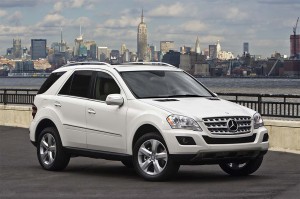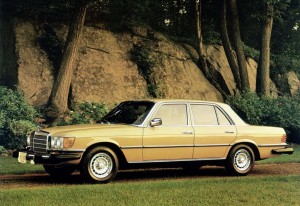
The 2017 Mercedes-Benz ML320 BlueTec is one a number of different Daimler diesels that won't be coming to America.
Volkswagen’s leaders reiterated today that the automaker’s future in the U.S. doesn’t include diesel engines, and Daimler AG’s leadership is following a similar path.
The company’s automotive unit, Mercedes-Benz, ended its attempted to get its diesel engines certified for sale in the U.S. for 2017. However, unlike VW, it hasn’t made a decision about its long-term plans for diesels in America.
“We constantly review our portfolio offerings and make adjustments to meet immediate customer need,” Mercedes-Benz USA spokesman Rob Moran said in an email to Reuters. “Combined with the increased effort to certify diesel engines in the US, we have put the certification process for diesel passenger cars on hold.”
Since Volkswagen’s diesel scandal from 2015, diesels have faced increased scrutiny by regulatory officials in the U.S. VW is paying more than $25 billion to address the problems created by its illegal diesels and the fallout, in terms of diesel sales, has been swift and steep.
(Daimler cautions it could be the target for diesel fines and recalls. Find out more, Click Here.)
Additionally, Daimler’s diesels are under investigation due to potential emissions problems. The company noted investigations by authorities of its emissions and auxiliary emission control devices could lead to significant penalties and recalls.
The queries are taking place on both sides of the Atlantic with the U.S. Justice Department, Environmental Protection Agency, California Air Resources Board, as well as a prosecutor in Stuttgart, Germany, investigating Mercedes-Benz diesel vehicles.
In March, the German prosecutor launched an investigation against Daimler employees on suspicion of fraud and misleading advertising tied to vehicle emissions. Daimler did gain approval in the U.S. earlier this year to sell diesel-powered version of its popular Sprinter minivan model.
While the German parent of both the Mercedes-Benz and Smart brands did not confirm it had broken the law, it laid open the possibility that its own diesel emissions strategy could be in trouble.
(Click Here for details about Daimler doubling its Q1 profits.)
“If these or other inquiries, investigations, legal actions and/or proceedings result in unfavorable findings, an unfavorable outcome or otherwise develop unfavorably, Daimler could be subject to significant monetary penalties, remediation requirements, vehicle recalls, process improvements and mitigation measures,” Daimler stated.
Whether the EPA and other government agencies in the U.S. and Europe will take action is far from certain and several automakers have been given a clean bill of health by European Union regulators.
While the majority of the vehicles Daimler sells in the U.S. rely on gasoline powertrains – and, with a number of models, gas-electric hybrid technology – diesels have become an increasingly popular part of its sales mix in recent years. Buyers have been drawn to promised benefits that include a combination of power, high mileage and reduced emissions.
(VW declares “the future is electric.” Click Here for the story.)
At their peak, diesels accounted for more than 20% of VW’s U.S. sales. The automaker has decided to stop selling “oil burners” in the American market, though sibling brand Audi expects to offer diesel options on a small number of products going forward.

